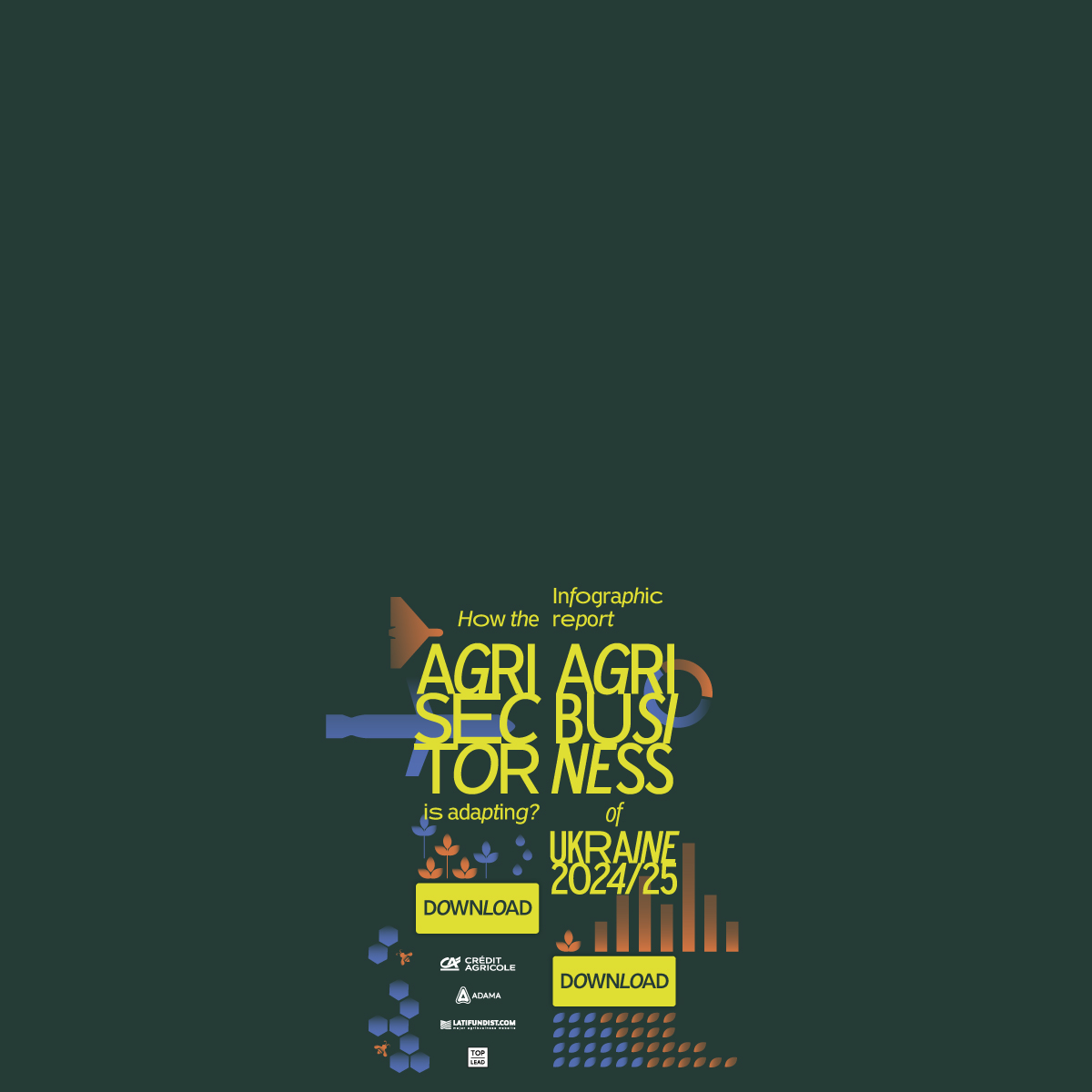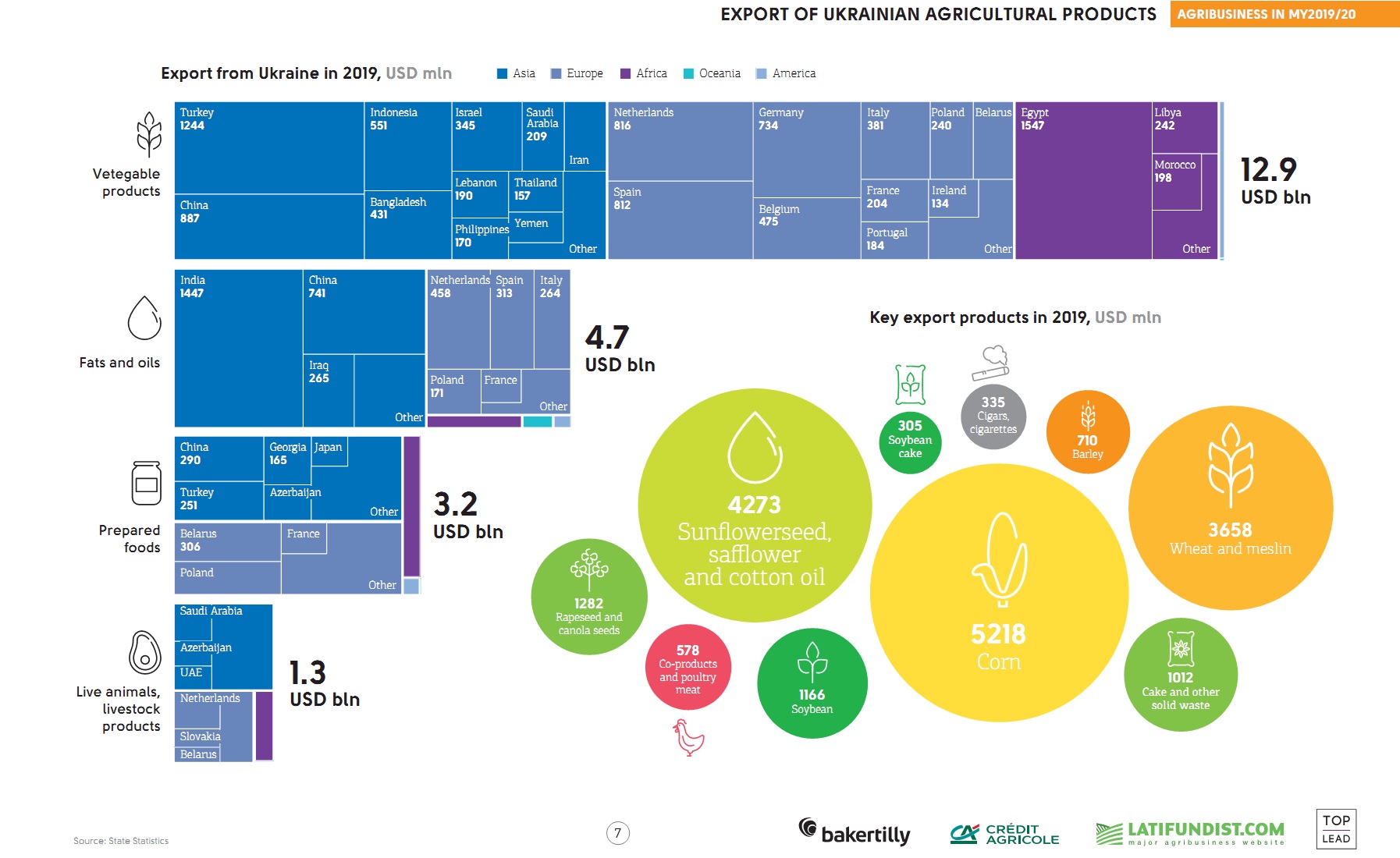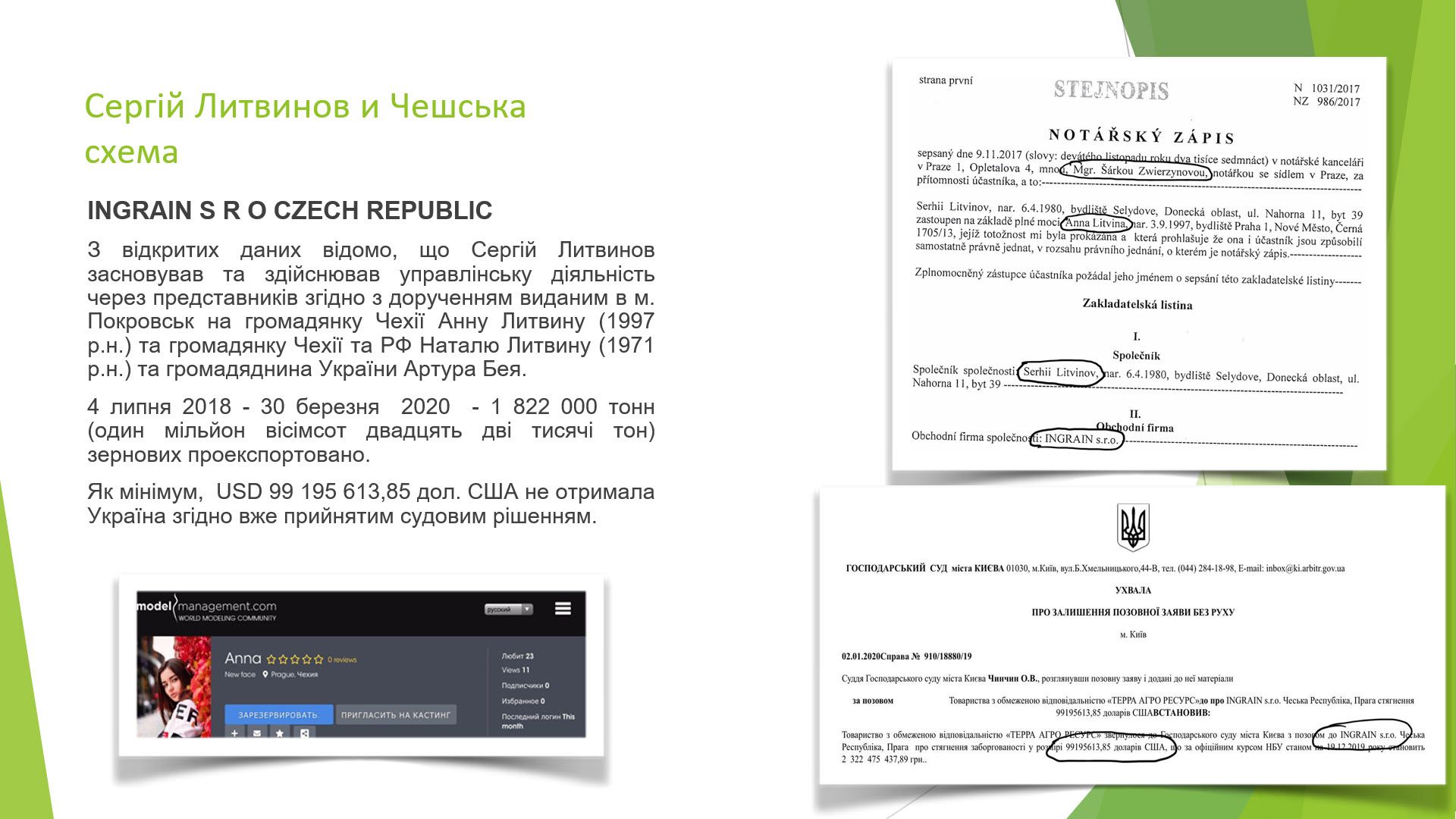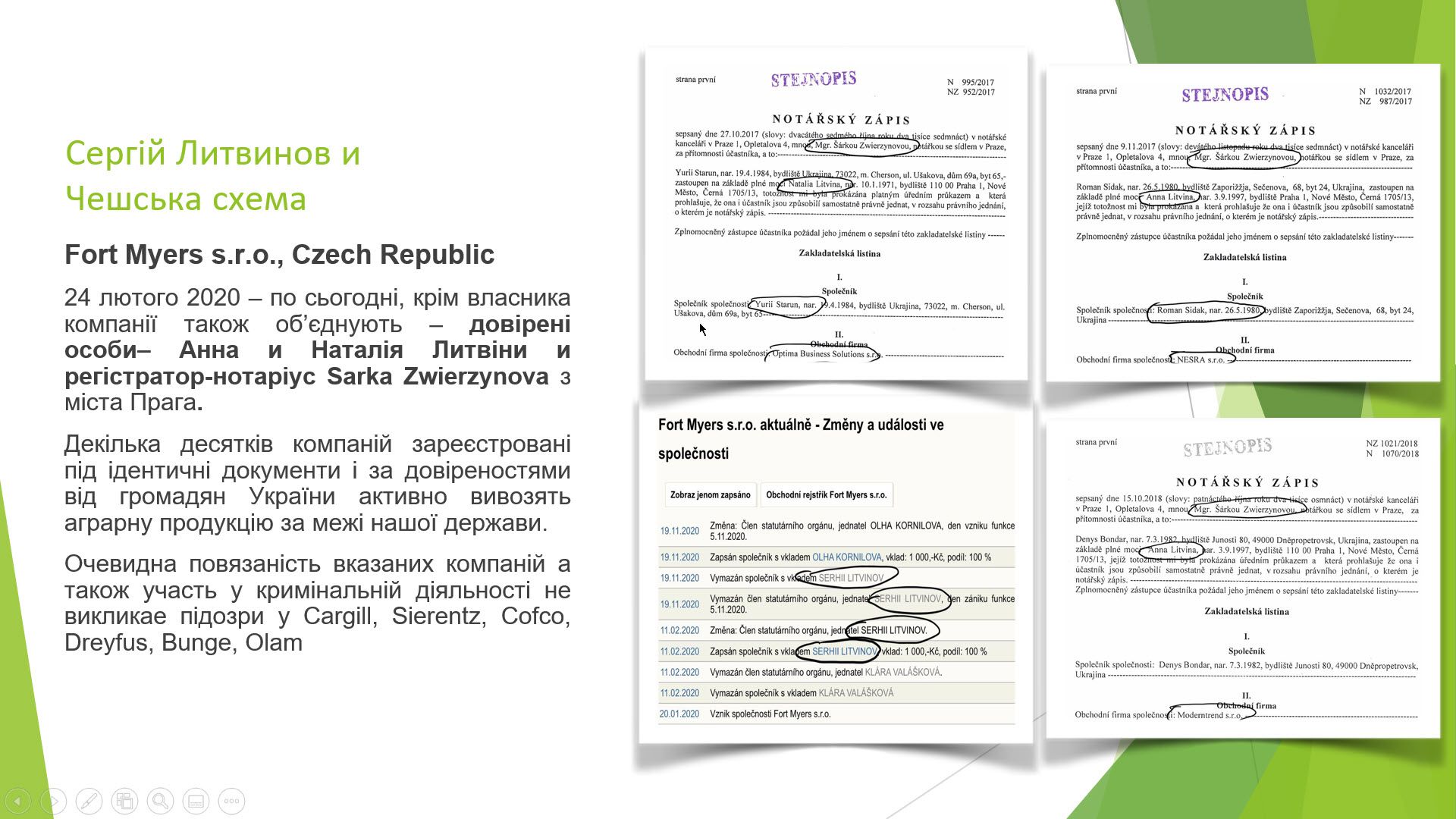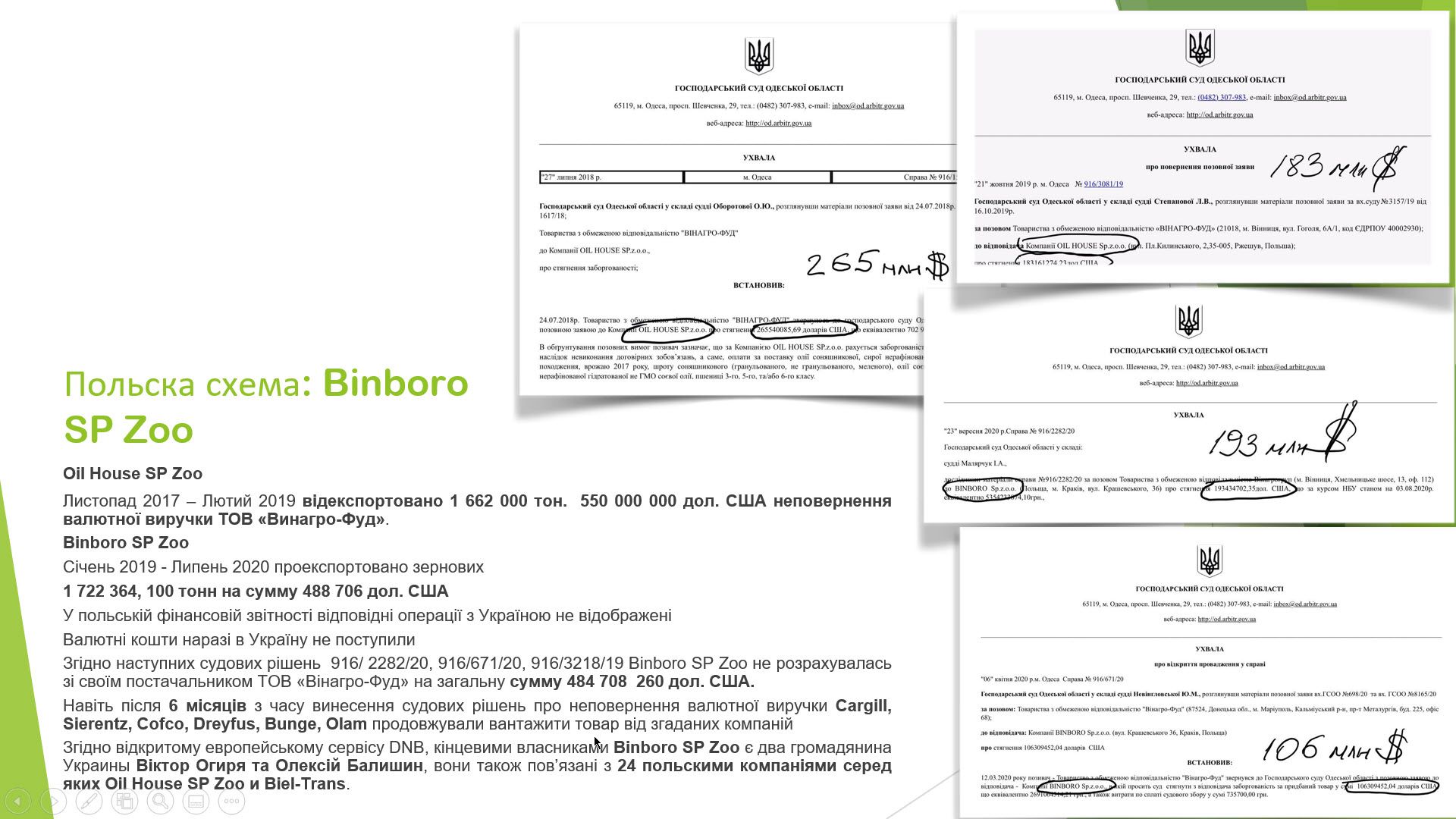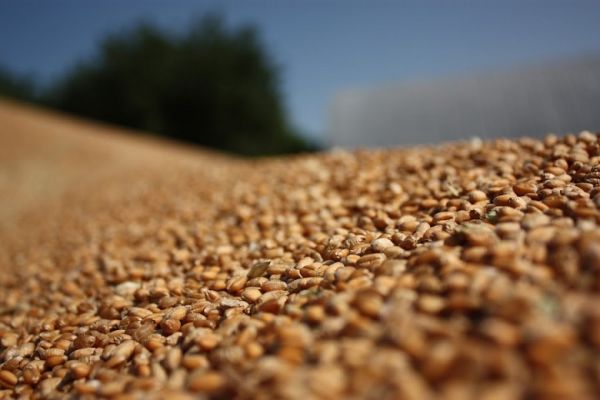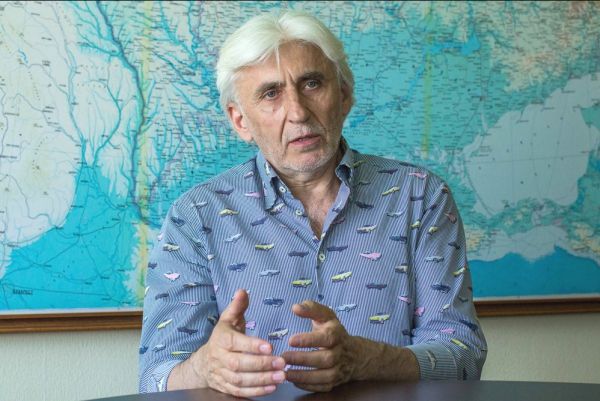Shadow schemes of multinational grain traders deprived Ukraine of USD 1 bln in revenue during 2019-20
Infographic guide Ukrainian Agribusiness 2019/20
Over 2019-20, Ukraine has lost USD 1 bln in foreign currency earnings as a result of the shadow schemes run by world major grain traders.
This is shown in the presentation-analysis "International schemes of money laundering through legal export of agricultural commodities by transnational corporations" of the "Center of Agrarian Logistics and Infrastructure", which was presented on December 18, 2020, at the meeting of the Temporary Investigation Commission (TIC) of the Verkhovna Rada of Ukraine (Parliament) on the investigation of the publicly reported facts of possible corruptive actions of the state authorities, leading to the significant loss of state budget income.
MP Ivan Krulko, who held a meeting of the TIC, announced that the non-return of currency proceeds from export operations with agricultural products in 2019 amounted to UAH 7.9 bln and in 1Q 2020 — UAH 1.6 bln. Of these, estimated income tax losses amounted to UAH 1.4 bln for 2019 and UAH 294 mln for 2020. In total, the amount makes up UAH 10 bln.
"It is possible that these amounts could be even higher," Ivan Krulko added.
The group of auditors of the Center of Agrarian Logistics and Infrastructure reports that by the decisions of courts on several companies alone the amount of non-returning foreign currency earnings over the past two years is more than USD 1 bln.
"According to our estimates, over the past four years, the country annually exports about 7 mln t of grain with non-return of currency earnings. We have analyzed about 30 thou. records in the customs database of Ukraine, court decisions of the Unified Register and open information about the companies-importers," noted the Center representatives.
The auditors believe that there is an obvious mechanism of establishing a chain of companies, which consists of Ukrainian entities registered in atypical countries for international trade (Czech Republic, Hungary, etc.). These companies are registered to Ukrainian citizens who are primary importers of grain and appear in customs declarations of Ukrainian exports. It is clear from public sources that these companies do not show their export operations and do not settle accounts with their Ukrainian suppliers. In other words, the companies showing million-dollar turnovers are, in fact, are shell entities.
"A company having one director and founder cannot export millions of tons of grain a year. After all, this commodity is loaded onto ships which then deliver cargo to international corporations. Thus, multinational corporations are to some extent the beneficiaries of this system," commented a representative of the Center for Agrarian Logistics and Infrastructure.
Experts believe that it is necessary to trace the chain from the first export operation to the moment the goods reach the international trader.
"There are no options to solve this problem in Ukraine as in recent years the Customs Service was deprived of the investigative function, and the tax authorities lost their functions of control. In addition, non-return of foreign currency earnings was decriminalized. The only option is to seek international help and to involve multinational corporations, who ship the grain from Ukraine. It is necessary to apply to the central offices of these transnational corporations," the report reads.
During the presentation, it was reminded that in 2008 Argentina in a case against the ABCD(Archer Daniels Midland Co, Bunge Ltd, Cargill Inc and Louis Dreyfus Co) traders recovered USD 868 mln in favour of the state. It was found that the real financial statements of ADM, Bunge, Cargill and Louis Dreyfus Company (LDC) did not reflect the real income from grain operations. Due to the disclosure of illegal actions, the Argentinean government demanded USD 476 mln from Bunge, USD 252 mln from Cargill and USD 140 mln from LDC.
